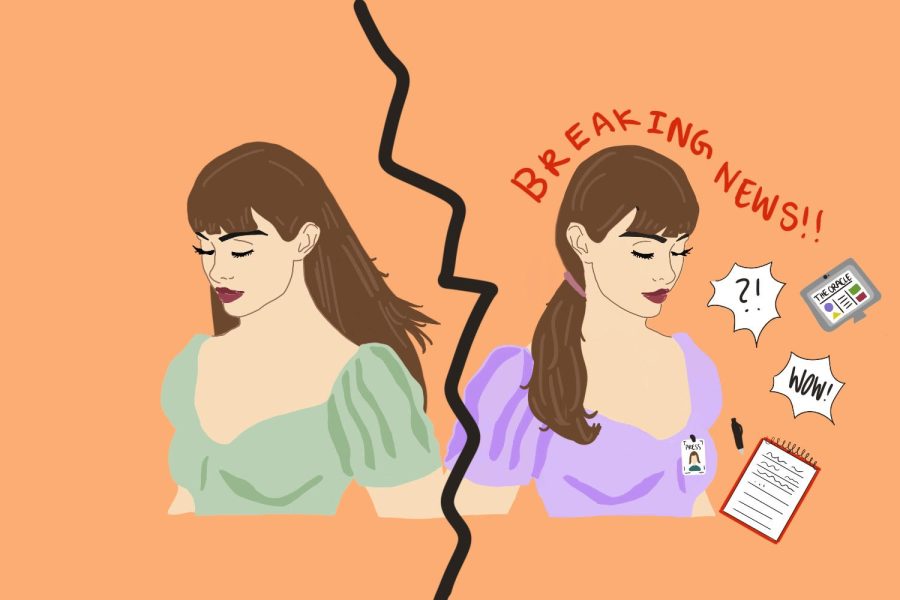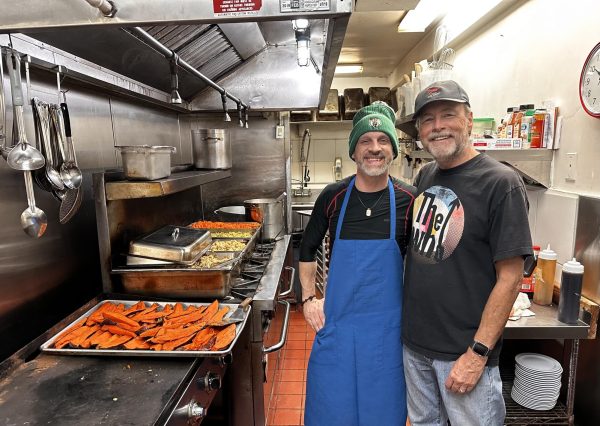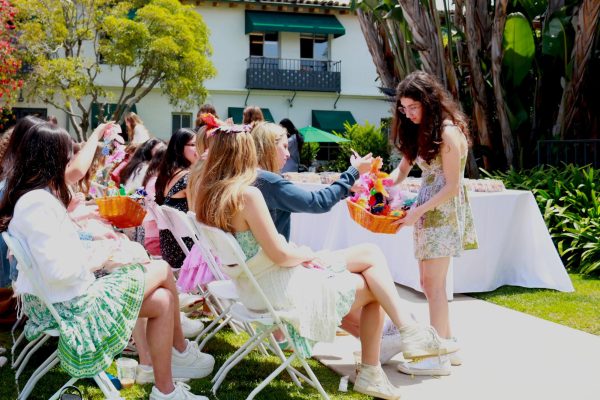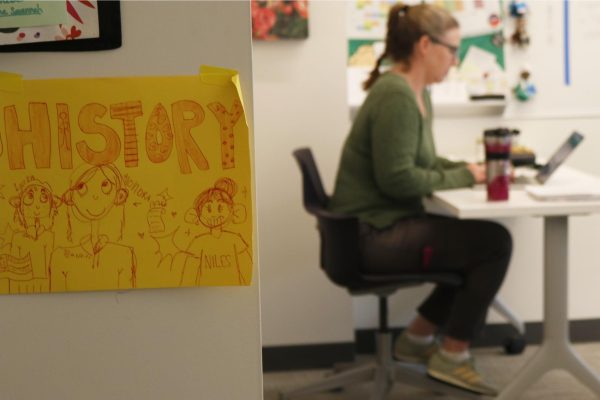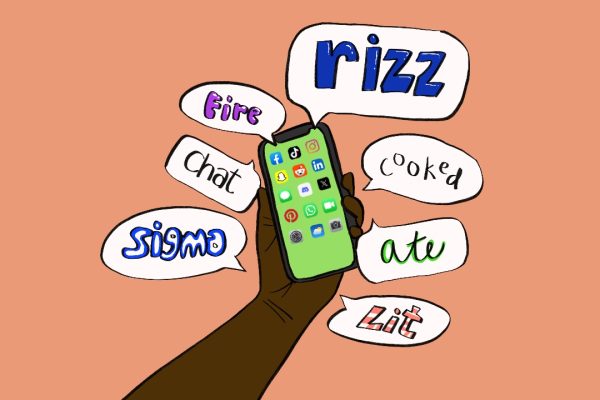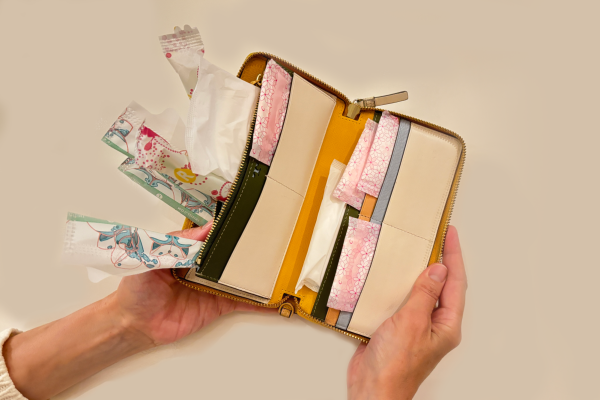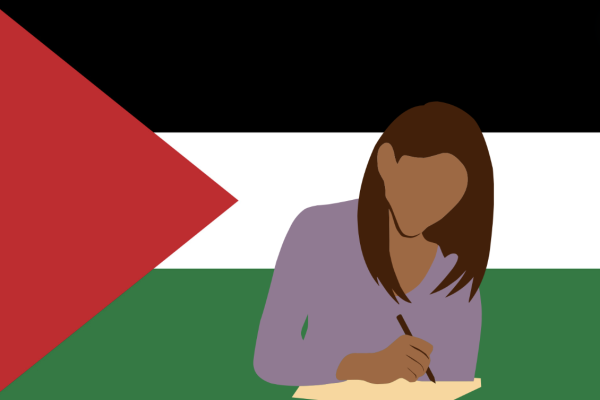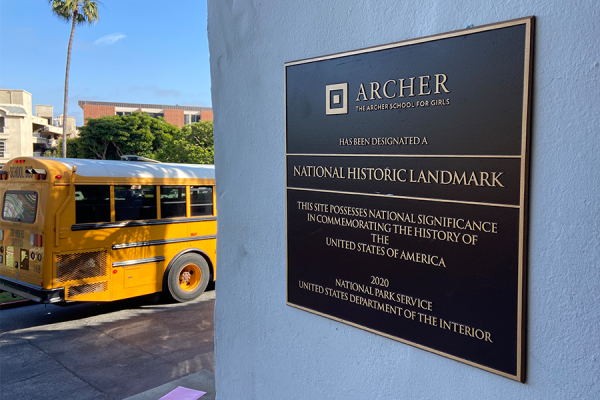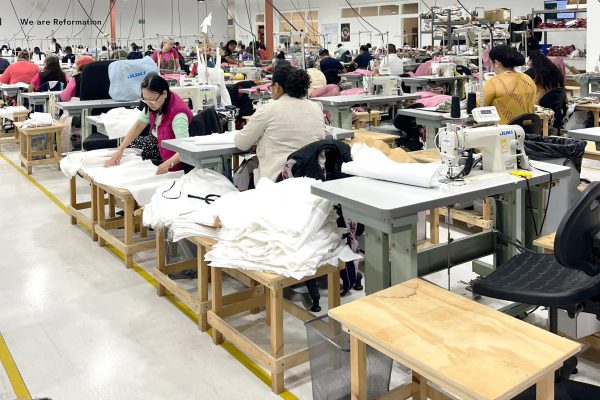Reporter vs. human: Student-journalists discuss approach to reporting on difficult topics
Photo credit: Sydney Frank
Two girls are split into two and each represent the two sides of a reporter: the human side and the inner reporter. Student-journalists across the country reflected on how they report on difficult topics and their experience. Graphic illustration by Sydney Frank.
When walking into their first journalism class, Archer student journalists learn about the pillars of journalism: to seek truth and report it, to minimize harm, to be accountable and transparent and to act independently. These pillars are then put to the test when reporters tackle difficult topics
For example, last school year, there was an incident on campus regarding hate speech written on sticky notes in the school’s bathroom mirror. A few days later, The Oracle reported on the situation and, as the pillar reads, sought truth and reported on it.
The Oracle sat down with student editors from different publications across the country to investigate how they report on serious topics, their experience and why they think it’s an integral part of a journalist’s role.
Importance of Different Perspectives
For Passion Editor Fernanda Matias at the Daily Howl in Castaic High School, becoming a student journalist granted her the opportunity to present issues that weren’t being actively taught in the classroom.
“I think journalism provides a mode for sparking difficult conversations for students by students,” Matias said. “In school, there really isn’t a class to learn about social justice issues or a space to seriously discuss the struggles that happen in our community.”
Co-Features Editor at the Wayland Student Press Network Kally Proctor said, in comparison to news outlets such as CNN or The New York Times, student-run publications offer a different perspective than news most people digest.
We are people first, and we shouldn’t necessarily have to completely separate that part from the reporting side, but, at the same time, you also have to make sure you’re not biased.
— Audrey Chang, News Editor at Archer's The Oracle
“It’s important to have perspectives of difficult topics as a student, as a teenager, as a minor,” Proctor said. “One of the articles I wrote was about school shootings, and I think it was really important to have an article written from a perspective of a student, rather than having adults reporting on the topic. We experience those events, so journalists like us offer something new.”
Passions and Challenges
Within journalism, fact-checking is a prominent skill that every journalist hones. However, in terms of trauma reporting, where journalists develop a healthy relationship with reporting on stories that deal with trauma and distress, fact-checking and learning how to balance being a human as well as a reporter becomes integral, according to News Editor Audrey Chang from Archer’s The Oracle newspaper.
“We are people first, and we shouldn’t necessarily have to completely separate that part from the reporting side, but at the same time, you also have to make sure you’re not biased,” Chang said. “It’s completely fine to have your own opinion about a lot of different topics because you can’t be completely neutral about everything, but … the importance of fact-checking comes up too because I think something that can be very insensitive is if something is published that isn’t accurate.”
An article that stands out for Matias is a piece she wrote about Latinas in the STEM field. She explained how this piece is memorable for her because she had the opportunity to write about her own community, but this connection also made the process challenging.
“An article that stands out to me — and I worked extra hard to make thoroughly objective — was my Latinas in STEM article. I talk about the lack of representation of my background within the field I want to go into, so it’s very personal to me,” Matias said. “That personal touch makes me maintain objectivity that much harder though. That’s a theme across these difficult articles — that unique connection helps passion. My favorite pieces are the ones that were hard.”
A difficulty that may arise for reporters when covering topics that are considered controversial or sensitive is reporting an opposing viewpoint. Reva Datar is the Copy Editor at Wayland High School in Wayland, Massachusetts. She recently wrote a story about implementing a race curriculum at her school.
“That article was challenging for me to write because I personally believe that race education is important, especially in a town like mine where there is so much privilege and instances of racism,” Datar said. “Growing up in this town as a person of color myself, I have seen so many of these incidents, so I believe strongly such education should be a thing. But we also had to interview people who didn’t agree. We had to include them — it’s not always going to be easy to do that, but we need to talk about stuff like this fully.”
Diversity in the Newsroom
According to Pew Research, in professional newsrooms, 68% of journalists that are between the ages of 18 to 29 say there isn’t enough racial or ethnic diversity in their publication compared to 37% of journalists who are 65 and older.
Datar said living in a predominately white town made her realize the significance of not only reporting on tough topics, but having a diverse staff in each newsroom.
“There’s not a Black or Latine person on our staff; I am one of a handful people of color on staff — it’s mostly white. As a result, there are a lot of privileged people on staff, so it’s harder to talk about these issues,” Datar said. “It’s so important to cover these issues as students because every issue affects people in different ways, and students are the only ones who can express how issues uniquely affect them. Sometimes we feel forgotten from media — that’s the power a publication has, in a very civilized way, to shed light [on] these issues.”
We got to stick with it though, even when it’s emotionally hard — we’re making a difference.
— Fernanda Matias, Passion Editor at The Daily Howl
In addition, Chang said the importance of a diverse newsroom is amplified at schools that are predominately white because reporters will bring a new perspective to not only the staff, but the broader community. Chang said diverse stories can extend beyond racial diversity and into sharing experiences that bring awareness to diverse ways of living.
“I think the importance of having a diverse staff, at any publication, but especially at Archer, is that a lot of people aren’t aware of some of the stories that people of different communities face or are challenged by. People might not know about it or haven’t experienced it firsthand,” Chang said. “Through opinion writing, a lot of people can understand other perspectives on political issues, but even going outside of the traditional racial diversity, everybody has different aspects. I just read an op-ed about someone on staff who has two moms.”
Matias has extended the skill of reporting on difficult topics beyond the classroom for Matias. She said the passion she felt when writing inspired her to found a Latin culture club at her school.
“Doing a lot of research for my articles has allowed me to learn a lot more about my background. I have that lens on now, a lot of times, when I am reading the news or thinking about my own identity,” Matias said. “During my freshman year, I founded a Latin culture club at my school, and doing research for these articles has heightened my passion for advocating for my community and made certain issues much more pronounced for me.”
Censorship and Persevering
While reporting on difficult topics, Matias has faced backlash on her writing. On an article she wrote about being Latina in the classroom, she received a comment that read, “Nobody cares about your culture, writing about it only singles you out even more.” She said the comment made her doubt if her article was important, but an interaction years later reminded her why she still reports on topics like these.
“A student came up to me and told me she had read the article and loved it. That was super special to me, and the lesson I learned … is that it’s important to know that there will always be a duality to how people receive your writing,” Matias said. “At the high school level especially, articles that tackle issues that lack attention can allow students to finally see themselves reflected.”
High school publications across the country have faced censorship in regard to what type of articles student journalists can cover. For Datar, she said she is grateful she has not had an experience of backlash or attempt to censor her publication. She said, however, that there hasn’t been a situation of this nature because her newspaper doesn’t write about topics that would be considered difficult.
“There is no official censorship because we are independent. We have full liberty. I really hope WSPN reported on larger topics that are going on. Why does WSPN — even if we can get censored, why would we not? Because we don’t even report on things that would be censored,” Datar said. “I think it’s also because the staff don’t see these issues like something to report on; that’s the root of it. We haven’t had an experience with censorship or backlash because we’ve never published something that might upset someone.”
With journalistic censorship and book-banning taking place across the country, Matias said she hopes student-journalists understand the role they have in school communities and beyond.
“Stripping our shelves of these books about diversity or inclusivity rids students of representation in the classroom,” Matias said. “In the wake of censorship, student journalists are faced with an even bigger responsibility of making those around them represented, so I think it’s important to keep that in mind. We got to stick with it though, even when it’s emotionally hard, we’re making a difference.”
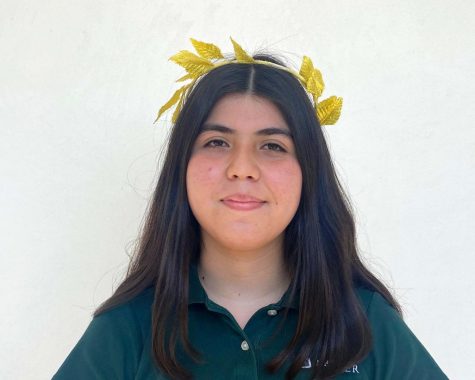
Lizette Gonzalez joined the Oracle as a staff reporter in 2019 and was Features Editor in 2022. She served on the executive board of Hermanas Unidas. In...
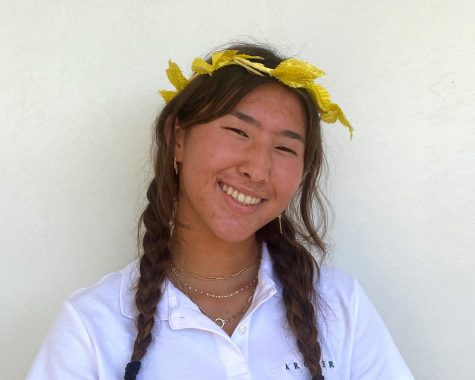
Sydney Frank was a part of The Oracle since 2021. Her passion for learning about the world around her and her desire to help others inspired her to write...



